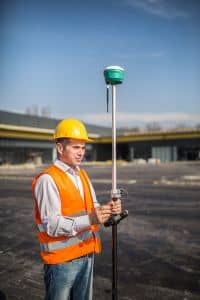
Are you planning to buy property, build a home, or settle a boundary dispute in Dallas? If so, you may need a land survey to determine property lines and ensure legal accuracy. But how much does a land survey cost in Dallas, and what factors affect the price? Understanding these costs can help you budget and avoid surprises.
In this guide, we’ll break down average land survey costs, key pricing factors, and how to save money while getting a reliable survey.
Average Land Survey Costs in Dallas
The cost of a land survey in Dallas can vary widely based on property size, type, and complexity. Below is a general price range for different types of land surveys:

- Basic Residential Boundary Survey: $300 – $700
- Larger Residential Lot Survey (1+ acre): $500 – $1,200
- Commercial Property Survey: $1,000 – $3,000+
- ALTA/NSPS Land Title Survey (for real estate transactions): $2,000 – $5,000
- Topographic Survey (for construction projects): $600 – $2,500
- Flood Elevation Survey (for insurance purposes): $400 – $900
Prices can fluctuate depending on the specific needs of your survey. Some surveys require more research, fieldwork, or permits, which can increase the cost.
Factors That Affect Land Survey Costs
Several factors influence the price of a land survey in Dallas. Here are the most important ones:
1. Property Size & Shape
- A small residential lot costs less than a large rural property.
- Irregularly shaped lots require more time and calculations, increasing costs.
2. Survey Type & Purpose
- A basic boundary survey costs less than an ALTA/NSPS survey, which is more detailed.
- Topographic surveys (used in construction) require advanced equipment and more time.
3. Terrain & Accessibility
- Flat, open land is easier to survey than wooded or hilly terrain.
- Properties with thick vegetation, fences, or water features may require extra work.
4. Legal & Permit Requirements
- If the property is involved in a boundary dispute, extra legal documents may be required.
- Surveying near public roads or utilities may require permits, increasing costs.
5. Historical Records & Previous Surveys
- If previous land survey records exist, the surveyor may have less work to do, reducing costs.
- If no records are available, the surveyor may need to research past property deeds and maps, increasing the cost.
How to Budget for a Land Survey in Dallas
1. Get Multiple Quotes
- Contact at least 3 licensed land surveyors in Dallas and compare prices.
- Ask for detailed estimates to understand what’s included.
2. Plan Ahead
- Last-minute surveys may come with rush fees.
- Schedule your survey early, especially during peak seasons.
3. Check Existing Property Records
- If you have old survey records, share them with the surveyor to reduce research time and cost.
4. Know What Type of Survey You Need
- Don’t overpay for a survey with unnecessary extras.
- Consult a surveyor to determine the exact type of survey required for your situation.
Understanding land survey costs in Dallas helps property owners budget effectively and avoid unexpected fees. The cost depends on property size, survey type, terrain, and legal requirements. By planning ahead, comparing quotes, and choosing a reliable, licensed surveyor, you can get an accurate survey without overpaying.


